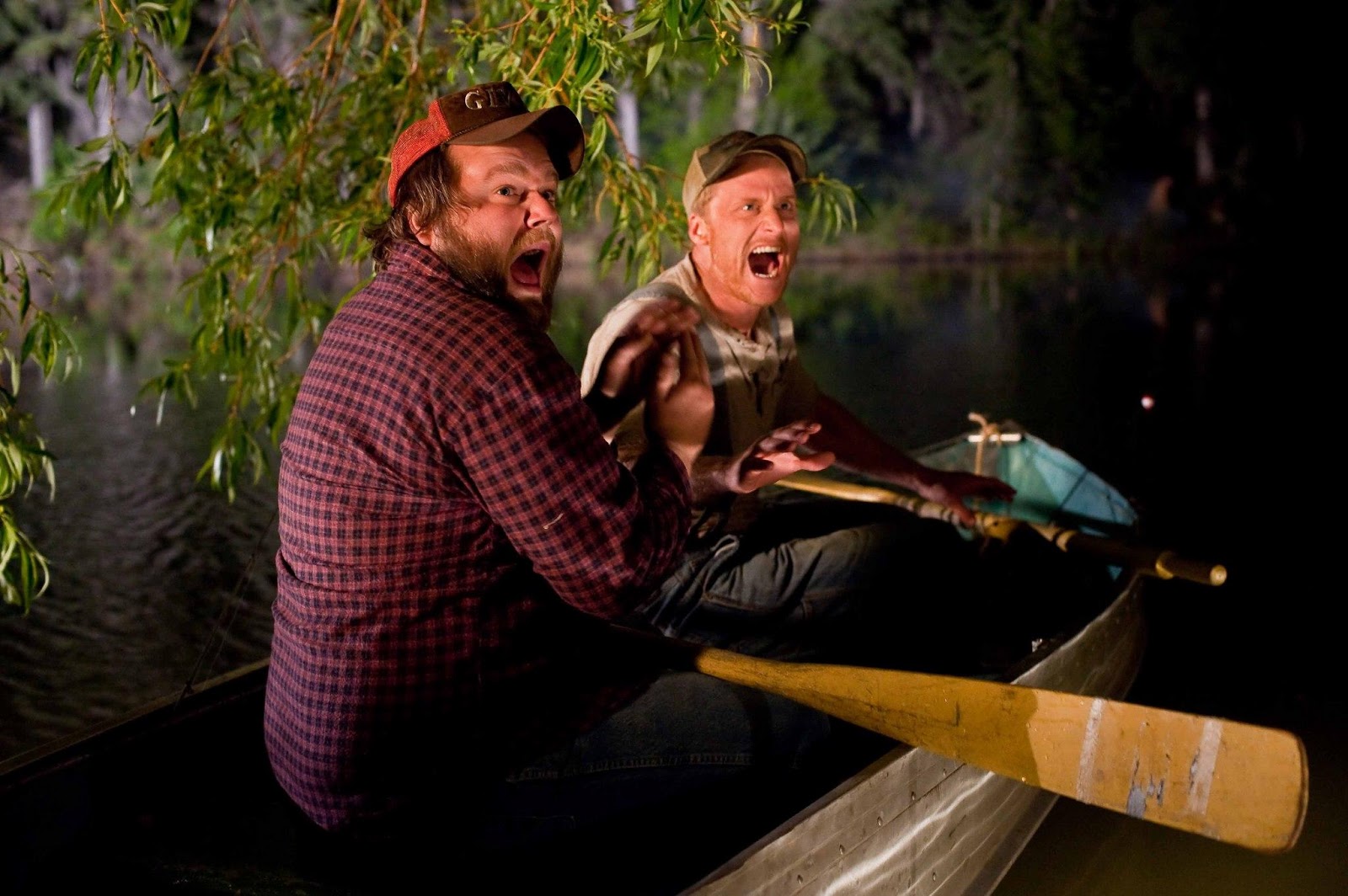 The spoof comedy has been given a bad name over the last few years with some dreadful attempts consistently failing to even raise a smile, often becoming unwatchable. Tucker and Dale vs Evil is quite the opposite, achieving exactly what it sets out to do with both style and irreverence.
The spoof comedy has been given a bad name over the last few years with some dreadful attempts consistently failing to even raise a smile, often becoming unwatchable. Tucker and Dale vs Evil is quite the opposite, achieving exactly what it sets out to do with both style and irreverence.This film could so easily have faltered without the instant likeability that the title characters possess. Their enduring friendship and Dale's debilitating shyness endearing them to us within minutes of the opening credits. Two buddies at last fulfilling their dream of a holiday home in the woods. With this anchor in place, as well as a measure of intelligence in execution, the movie's ridiculous plot points are prevented from falling into Scary Movie territory.
Director, Eli Craig, who also gets a writing credit alongside Morgan Jurgenson, is acutely aware of the basis of the amusement. All the usual tropes are present, a willingness to push the conventions to absurd levels in pursuit of a laugh abundantly clear. There's no shortage of jumpy shocks and it certainly doesn't skimp on the gore. Blood is sprayed around liberally on more than one occasion and the excess to which it is utilised is frequently a source of semi-disgusted laughter. It's definitely one to watch with company, these moments in particular being a joy to share.
The references come thick and fast, but always stray on the right side of esoteric, the picture being engineered in such a way that you probably won't even need to have seen half the movies hinted at to be in on the joke. This is a huge advantage. Personally, I don't often sit down with a horror flick, but have seen most of the classics (The Texas Chainsaw Massacre, Halloween etc.). This seemed to be more than enough background to get the most out of the movie and will likely broaden its appeal to potential audiences no end.
It's not often that a film leaves you hoping for a sequel, mostly in light of how absolutely awful they often are, but I would love to see more of the outrageous antics that we are treated to here. Lovable silliness may seem at odds with horror flick conventions, but Craig and company have managed to pull it off brilliantly.
The Verdict:
7/10
There's no shortage of serious horror tropes here, but it's the endearing characters, cleverness and outright silliness that make this one of the best spoofs I've seen in a very long time.
















